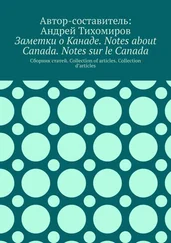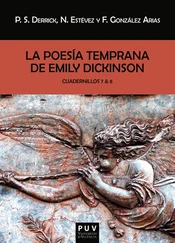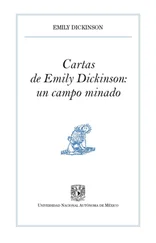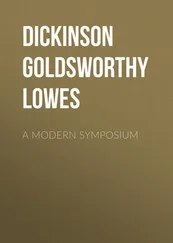Goldsworthy Dickinson - Appearances - Being Notes of Travel
Здесь есть возможность читать онлайн «Goldsworthy Dickinson - Appearances - Being Notes of Travel» — ознакомительный отрывок электронной книги совершенно бесплатно, а после прочтения отрывка купить полную версию. В некоторых случаях можно слушать аудио, скачать через торрент в формате fb2 и присутствует краткое содержание. Жанр: foreign_antique, foreign_prose, на английском языке. Описание произведения, (предисловие) а так же отзывы посетителей доступны на портале библиотеки ЛибКат.
- Название:Appearances: Being Notes of Travel
- Автор:
- Жанр:
- Год:неизвестен
- ISBN:нет данных
- Рейтинг книги:5 / 5. Голосов: 1
-
Избранное:Добавить в избранное
- Отзывы:
-
Ваша оценка:
- 100
- 1
- 2
- 3
- 4
- 5
Appearances: Being Notes of Travel: краткое содержание, описание и аннотация
Предлагаем к чтению аннотацию, описание, краткое содержание или предисловие (зависит от того, что написал сам автор книги «Appearances: Being Notes of Travel»). Если вы не нашли необходимую информацию о книге — напишите в комментариях, мы постараемся отыскать её.
Appearances: Being Notes of Travel — читать онлайн ознакомительный отрывок
Ниже представлен текст книги, разбитый по страницам. Система сохранения места последней прочитанной страницы, позволяет с удобством читать онлайн бесплатно книгу «Appearances: Being Notes of Travel», без необходимости каждый раз заново искать на чём Вы остановились. Поставьте закладку, и сможете в любой момент перейти на страницу, на которой закончили чтение.
Интервал:
Закладка:
The next scenes were equally vigorous. The synopsis describes them thus: "Several young princes went to Genie Janar, the father of the Moon Princess, to demand her in marriage. Afrid, a genie, met the princes, and, after having a row, they were all thrown away." The row was peculiar. Afrid took them on one by one. The combatants walked round one another, back to back, making feints in the air. Then the Prince got a blow in, which Afrid pretended to feel. But suddenly, with a hoarse laugh, he rushed again upon the foe, seized him by the throat or the arm, and (I cannot improve on the phrase) "threw him away." After all four princes were thus disposed of I left, being assured of a happy ending by the account of the concluding scene: "The Prince then took the Moon Princess to his father's kingdom, where he was married to her amidst great rejoicings."
Comment perhaps is superfluous. But as I went home in my rickshaw my mind went back to those evenings in India when I had seen Indian boys perform to Indian music dances and plays in honour of Krishna, and to the Bengal village where the assembled inhabitants had sung us hymns composed by their native saint. And I remembered that everywhere, in Egypt, in India, in Java, in Sumatra, in Japan, the gramophone harmonium is displacing the native instruments; and that the bioscope – that great instrument of education – is familiarising the peasants of the East with all that is most vulgar and most shoddy in the humour and sentiment of the West.
The Westernising of the East must come, no doubt, and ought to come. But in the process what by-products of waste, or worse! Once, surely, there must have been a genuine "Malay theatre." This is what Europe has made of it.
PART II
CHINA
I
FIRST IMPRESSIONS OF CHINA
Some recent travellers have expressed disappointment or even disgust with what they saw or learned or guessed of China. My own first impression is quite contrary. The climate, it is true, for the moment, inclines one to gloomy views. An icy wind, a black sky, a cold drizzle. March in England could hardly do worse. But in Canton one almost forgets all that. Imagine a maze of narrow streets, more confused and confusing than Venice; high houses (except in the old city); and hanging parallel to these, in long, vertical lines, flags and wooden signs inscribed with huge Chinese characters, gold on black, gold on red, red or blue on white, a blaze of colour; and under it, pouring in a ceaseless stream, yellow faces, black heads, blue jackets and trousers, all on foot or borne on chairs, not a cart or carriage, rarely a pony, nobody crowding, nobody hustling or jostling, an even flow of cheerful humanity, inexhaustible, imperturbable, convincing one at first sight of the truth of all one has heard of the order, independence, and vigour of this extraordinary people. The shops are high and spacious, level with the street, not, as in India, raised on little platforms; and commonly, within, they are cut across by a kind of arch elaborately carved and blazing with gold. Every trade may be seen plying – jade-cutters, cloth-rollers, weavers, ring-makers, rice-pounders, a thousand others. Whole animals, roasted, hang before the butchers' shops, ducks, pigs – even we saw a skinned tiger! The interest is inexhaustible; and one is lucky if one does not return with a light purse and a heavy burden of forged curios. Even the American tourist, so painfully in evidence at the hotel, is lost, drowned in this native sea. He passes in his chair; but, like oneself, he is only a drop in the ocean. Canton is China, as Benares is India. And that conjunction of ideas set me thinking. To come from India to China is like waking from a dream. Often in India I felt that I was in an enchanted land. Melancholy, monotony, austerity; a sense as of perennial frost, spite of the light and heat; a lost region peopled with visionary forms; a purgatory of souls doing penance till the hour of deliverance shall strike; a limbo, lovely but phantasmal, unearthly, over-earthly – that is the kind of impression India left on my mind. I reach China, awake, and rub my eyes. This, of course, is the real world. This is every-day. Good temper, industry, intelligence. Nothing abnormal or overstrained. The natural man, working, marrying, begetting and rearing children, growing middle-aged, growing old, dying – and that is all. Here it is broad daylight; but in India, moon or stars, or a subtler gleam from some higher heaven. Recall, for example, Benares – the fantastic buildings rising and falling like a sea, the stairs running up to infinity, the sacred river, the sages meditating on its banks, the sacrificial ablutions, the squealing temple-pipes, and, in the midst of this, columns of smoke, as the body returns to the elements and the soul to God. This way of disposing of the dead, when the first shock is over, lingers in the mind as something eminently religious. Death and dissolution take place in the midst of life, for death is no more a mystery than life. In the open air, in the press of men, the soul takes flight. She is no stranger, for everything is soul – houses, trees, men, the elements into which the body is resolved. Death is not annihilation, it is change of form; and through all changes of form the essence persists.
But now turn back to Canton. We pass the shops of the coffin-makers. We linger. But "No stop," says our guide; "better coffins soon." "Soon" is what the guide-books call the "City of the Dead." A number of little chapels; and laid in each a great lacquered coffin in which the dead man lives. I say "lives" advisedly, for there is set for his use a table and a chair, and every morning he is provided with a cup of tea. A bunch of paper, yellow and white, symbolises his money; and perhaps a couple of figures represent attendants. There he lives, quite simply and naturally as he had always lived, until the proper time and place is discovered in which he may be buried. It may be months, it may be, or rather, might have been, years; for I am told that a reforming Government has limited the time to six months. And after burial? Why, presumably he lives still. But not with the life of the universal soul. Oh no! There have been mystics in China, but the Chinese are not mystical. What he was he still is, an eating and drinking creature, and, one might even conjecture, a snob. For if one visits the family chapel of the Changs – another of the sights of Canton – one sees ranged round the walls hundreds of little tablets, painted green and inscribed in gold. These are the memorials of the deceased. And they are arranged in three classes, those who pay most being in the first and those who pay least in the third. One can even reserve one's place – first, second, or third – while one is still alive, by a white tablet. You die, and the green is substituted. And so, while you yet live, you may secure your social status after death. How – how British! Yes, the word is out; and I venture to record a suspicion that has long been maturing in my mind. The Chinese are not only Western; among the Western they are English. Their minds move as ours do; they are practical, sensible, reasonable. And that is why – as it would seem – they have more sympathy with Englishmen, if not with the English Government, than with any other Westerners. East may be East and West West, though I very much doubt it. But if there be any truth in the aphorism, we must define our terms. The East must be confined to India, and China included in the West. That as a preliminary correction. I say nothing yet about Japan. But I shall have more to say, I hope, about China.
II
NANKING
The Chinese, one is still told, cannot and will not change. On the other hand, Professor Ross writes a book entitled The Changing Chinese . And anyone may see that the Chinese educated abroad are transformed, at any rate externally, out of all recognition. In Canton I met some of the officials of the new Government; and found them, to the outward sense, pure Americans. The dress, the manners, the accent, the intellectual outfit – all complete! Whether, in some mysterious sense, they remain Chinese at the core I do not presume to affirm or deny. But an external transformation so complete must imply some inward change. Foreign residents in China deplore the foreign-educated product. I have met some who almost gnash their teeth at "young China." But this seems rather hard on China. For nearly a century foreigners have been exhorting her, at the point of the bayonet, to adopt Western ways and Western ideas. And when she begins to do so, the same people turn round and accuse her of unpardonable levity, and treachery to her own traditions. What do foreigners want? the Chinese may well ask. I am afraid the true answer is, that they want nothing but concessions, interest on loans, and trade profits, at all and every cost to China.
Читать дальшеИнтервал:
Закладка:
Похожие книги на «Appearances: Being Notes of Travel»
Представляем Вашему вниманию похожие книги на «Appearances: Being Notes of Travel» списком для выбора. Мы отобрали схожую по названию и смыслу литературу в надежде предоставить читателям больше вариантов отыскать новые, интересные, ещё непрочитанные произведения.
Обсуждение, отзывы о книге «Appearances: Being Notes of Travel» и просто собственные мнения читателей. Оставьте ваши комментарии, напишите, что Вы думаете о произведении, его смысле или главных героях. Укажите что конкретно понравилось, а что нет, и почему Вы так считаете.












